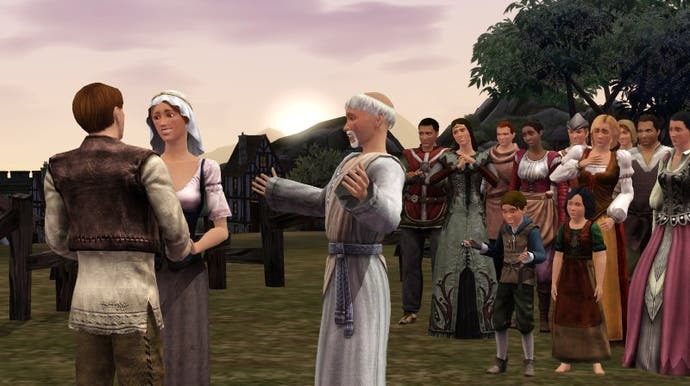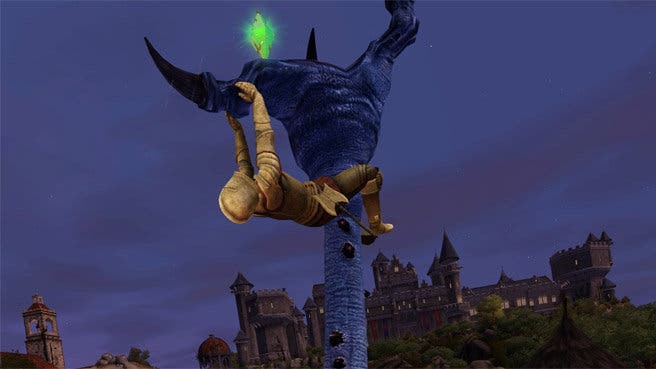The Sims Medieval
Knightlife.
Here's the best thing I have to say about The Sims Medieval, and it's coming at you right this second like a fat child scudding down a water slide. The Sims Medieval is like nothing else I've ever played. It's not even like The Sims.
The Sims Medieval is best described as an interactive soap opera, set in a strictly candy-coated interpretation of the Middle Ages. As the game begins you're given charge of a handsome king or pretty queen of your own design, a small castle, and a whole lot of empty land. Yet while this is a Sims game, Medieval does not then set you free, allowing you to simply climb a sturdy ladder of self-improvement or create a self-important fat dude who'll make womanising laps of the neighbourhood.
Rather, your time with Medieval is structured around "Quests" which, if we're running with the soap opera analogy, could be compared to individual episodes. Once you've picked your quest, be it finding a lost boy or dealing with a growing populace of subterranean crab people, you pick a Hero (to start with the choice is limited to your monarch) and only then does the game begin following them in the traditional and much-loved Sims style. As usual, you don't have direct control, but you can click on any person or object to set your little computer person off and interacting with them or it in a manner of your choice.

How your character's quest enters into this is more than a little bizarre, because the game prompts you with what to do every step of the way. Down there towards the bottom of the screen will be a chunky icon saying "Go ask Harris the Stranger about these disappearances!" Or something.
So you click on Harris the Stranger and select the options that reads "Ask about disappearances". This complete, the icon will tell you to do something else, and so on. Any given Quest is only ever a series of simple instructions – fight her, take this, give it to him, take it back, read it, talk to him, go home, put this guy in the stocks, go to bed, eat an apple until finally you get a CONGRATULATIONS, Quest Complete! It's as if the adventure game genre had sex with a to-do list.

The actual game is in making sure that your Sim is simply in a good mood as they run all these errands, which is referred to as their "Focus". For instance, if you eat a good meal, win a duel and successfully complete your hero's two daily tasks (the Blacksmith might have to repair a sword and mine some ore, while your King or Queen could be expected to hold court and perform the excellently non-specific "Write New Laws"), these collected buffs will have your Hero Sim so blissfully focused that they'll soar through the various tasks of the Quest like some feudal Kriss Akabusi. Miserable Heroes will, conversely, botch everything they touch.
Medieval is The Sims reimagined as something much more mercenary. Relationships and furniture were real currency in The Sims, and that's not the case here. While you can happily ignore a quest and simply live out your chosen hero's life, you're doing so without any sense of progression or purpose. What you really want is the XP that levels up your Heroes and the RP that lets you add new buildings to your adorable realm. These bring new Heroes of their own: a church brings a priest, the tavern a bard, the wizard's tower a wizard, and so on, and then each of these new Heroes can partake in quests and be levelled up even further.








